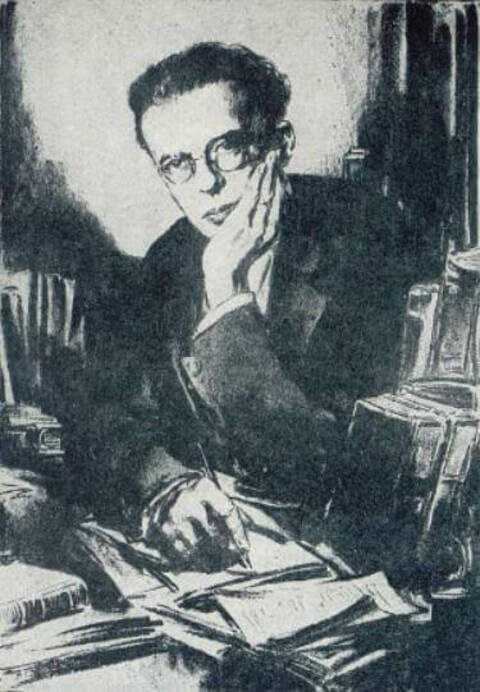
Aldous Huxley, born in Surry, England in 1894, is best known for his dystopian novel, Brave New World (1932). Considered a humanist, pacifist, satirist, and agnostic, Huxley wrote novels, short stories, poems, movie scripts and travel writings. He moved from England to Los Angeles in 1937, where he remained until his death in 1963.
Considered a prominent intellectual of his time, Huxley was gravely concerned about the power of mass media, the potential manipulation of humans with mood-altering drugs, and the misapplication of sophisticated technology. He was well-known for his use of psychedelic drugs, as chronicled in The Doors of Perception (1954), where he reflects on the experience and its meaning for art and religion. Visit our Science Fiction Study Guide and collection of Dystopian Stories.
Though Huxley is best known for Brave New World, his lesser-known accomplishments include editing Oxford Poetry while in college, and much later, writing screenplays for the movies, Pride and Prejudice (1940) and Jane Eyre (1944). His screenplay for Alice in Wonderland (1951) was rejected.
How he arrived at his career is an interesting story in and of itself. He was born into a family of renowned scientists. Two of his three brothers were prominent biologists, his grandfather was a controversial naturalist, known as "Darwin's Bulldog," Thomas Henry Huxley. It would seem the young Huxley would follow in their footsteps.
But Huxley became blind in one eye when he contracted a disease at 17, so that ruled out practicing medicine or science. He also couldn't join the Army or see combat during World War I. His near-blindness broadened his perceptions, leading to his later experiences and writing career. His first published novel was the social satire, Crome Yellow (1921). Huxley shared many philosophies and concerns about the future with his contemporary, George Orwell.
"Every man's memory is his private literature."












